"Fresh.Land began because of one grower's cry for help,” begins Mathilde Jakobsen of this Danish digital platform. “A few years ago, my father-in-law, who grows oranges in Algarve, Portugal, couldn't get his fruit sold. That was due to oversupply and low prices on the local market because of South African imports. It was a shame to see all those beautiful, delicious oranges hanging on the trees, unpicked. And he ended up being paid not even a tenth of the supermarket retail price.”
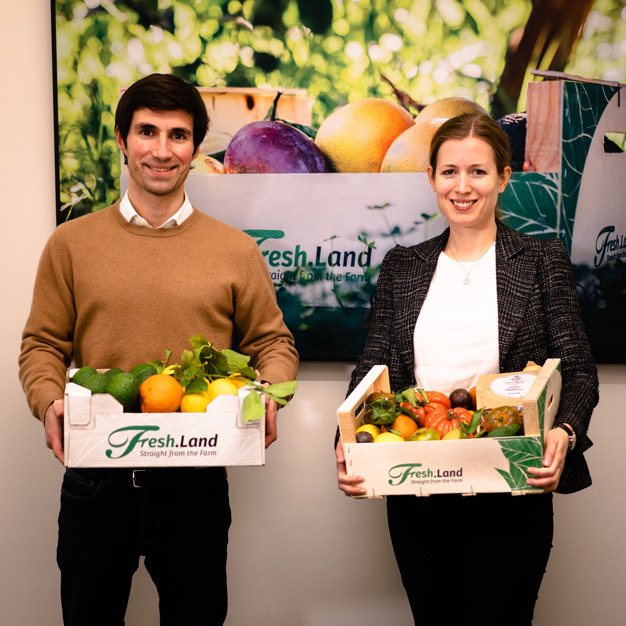 Mathilde and her Portuguese partner
Mathilde and her Portuguese partner
"We got the idea to import a pallet of oranges in Denmark. We wanted to offer that fruit in the form of freshly-squeezed juice to consumers at a stand in Copenhagen's biggest shopping street, in order fort he consumers to taste the difference. The initiative was not profitable at all in the beginning; transporting a single pallet in groupage was very expensive. But it helped the grower, and gradually we showed people how fruit picked ripe in Europe taste different from overseas imported products, which had spent weeks in transit in cold storage, while ours came freshly harvested from the threes" says Mathilde.
The stall was quite successful, so they offered the product and concept to retailers. Soon Menu, a large Danish retail chain, offered the young entrepreneurs a separate shelf in their stores, not only for oranges but for other fruits and vegetables from mainly Portuguese growers too. Consumers got to discover the story behind each product.
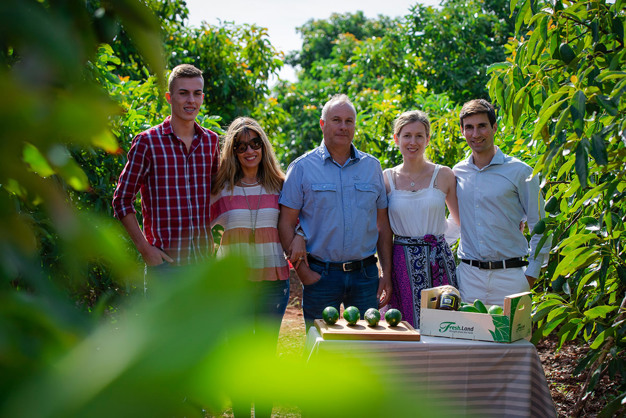
From B2B to B2C
"In 2019, even before the pandemic, the demand for products directly from the farmer increased. We also faced issues keeping the fruits and vegetables fresh, especially since the supermarkets usually didn't put the produce on the shelf right away.” Fresh.Land, thus, rethought their model and began home deliveries to consumers, even though, at that point, they were already supplying two to three truckloads of goods to various retailers in Denmark, Germany, Austria and Sweden.
"The switch, which went smoothly, coincidentally happened a few months before COVID-19 hit. And in March 2020, demand exploded. Every time the Danish prime minister spoke on TV about lockdowns, our orders doubled. In the end, our 2020 sales were 13 times that of the previous year, and that doubled again in the following year. Plus, our team of five grew to a 50-strong workforce in no time," explains Mathilde.
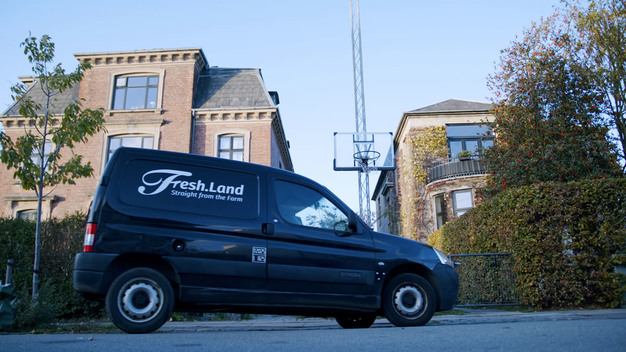
Outsourcing
This demand fort his home-delivery service, however, decreased in the summer of 2021. That was to be expected as people went back on vacation. But after the summer, that engine continued to sputter. Was the problem with Fresh.Land, or was it a broader market phenomenon? Management wondered about that - now proved to be a general Internet segment downward trend - and faced problems, not least because it had 50 salaried employees in Denmark. Company management and all processes were scrutinized and made more cost-efficient. Outsourcing had to keep the company profitable so it could continue providing delivery guarantees to both its growers and customer base.
The company outsourced its customer service and cut its purchasing team from 12 to two, thanks largely to automation. The marketing department, too, which consisted of four teams for the four markets in which the company operated B2C (Denmark, Sweden, Germany, and the Netherlands), was slimmed down, centralized, and eventually outsourced. Now the company, which Mathilde and her husband, Filipe, run from Portugal and Denmark, uses only freelancers and outsource service providers. This allows Fresh.Land to scale up and down with the demand and eliminated fixed costs.
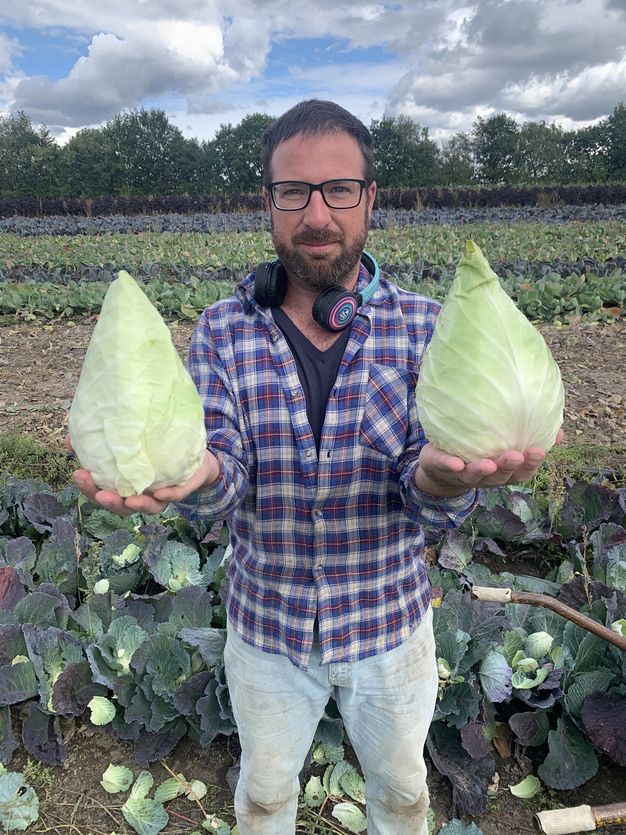
Seasonal products only
The trading company focuses on B2C marketing of European seasonal products. Overseas products are an exception in Fresh.Land's offering. This local focus need not always be a problem in terms of the marketing calendar, Mathilde points out. "You can get Spanish avocados fresh from the trees, for instance, from October to June. And in the summer, as mentioned, there are fewer orders anyway."
Growers that join the project have several advantages. "For example, our customer base doesn't mind eating products with superficial imperfections or large or small fruit, as this is nature. They know that quality has its price, so we can invariably pay growers a little extra. It makes a big difference when you can skip as many as five supply chain brokers," says Jakobsen.
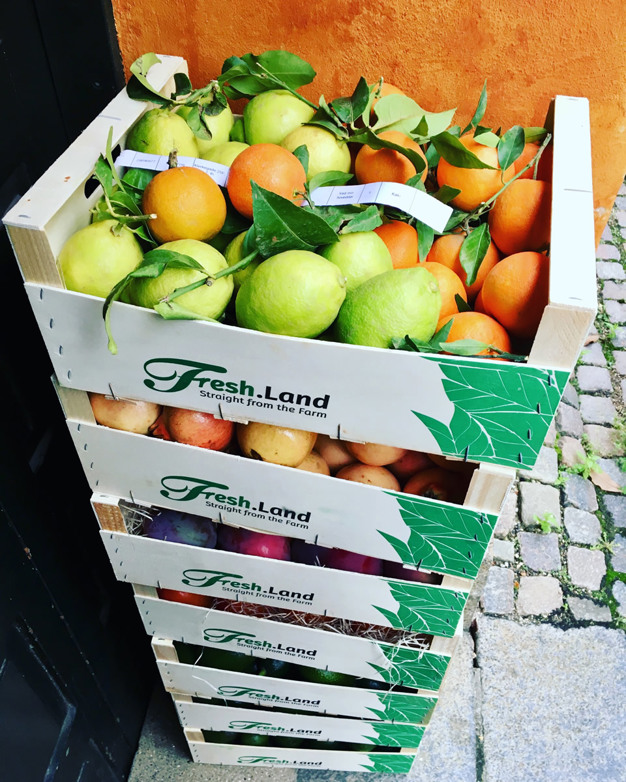
No market price
This Danish platform's sales prices do not depend on market prices; instead, it has fixed prices for the season. "For pricing, we primarily consider what people are willing to pay for particular products. That's our starting point. And we always seek long-term grower partnerships."
Their assortment includes strawberries from Southeastern Europe, Belgian greenhouse tomatoes - but not those grown under lights - bananas from the Canary Islands, Spanish pine nuts, Otello tomatoes from Italy - in a mixed crate with onions and garlic from the same grower - but also, most importantly, locally grown products. "We always look for growers as close to the market as possible, remembering that post-harvest processes cause 72% of emissions in the food industry," Mathilde continues.
"The food industry, in itself, accounts for 26% of global emissions." Also, according to the manager, in the traditional supply chain, cold storage causes the most emissions. Some studies claim this item accounts for two-thirds of total post-harvest process emissions. “At Fresh.Land products are never stored. Transport from farm to fork takes, at most, five days," says Mathilde.
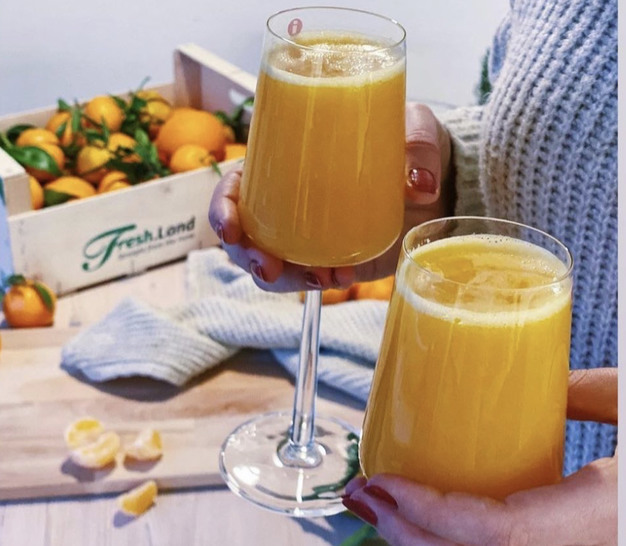
Wooden crates
As the company's name suggests, freshness is a non-negotiable at Fresh.Land. Not everything is organic, but their products' peels are not chemically treated. Those are usually applied to boost product quality and shelf life. Consumers can place orders on the digital platform until midnight on Wednesdays. The growers thus know on Thursdays exactly how much to harvest, and the order is delivered to people's doorsteps the following Tuesday or Wednesday. Tomatoes come in 4 kg crates, lemons per 3 kg. All the different growers' containers from the various countries arrive at the distribution centers simultaneously: vegetables from the Netherlands, mushrooms from Germany, citrus from Spain, wild garlic from Denmark. There is a DC in Denmark, and there are five more hubs from which a logistics partner covers the final kilometers.
Fresh.Land packages this fruit and vegetables loose in wooden crates or cardboard boxes. Its pool system has no plastic containers. "That would require a lot of organization and uses resources. We actively encourage our customers to reuse the boxes or, if they wish, return them when their next order is delivered. We can then reuse it. Danish growers can then pick them up at our distribution center. But most people choose to reuse the crates themselves."
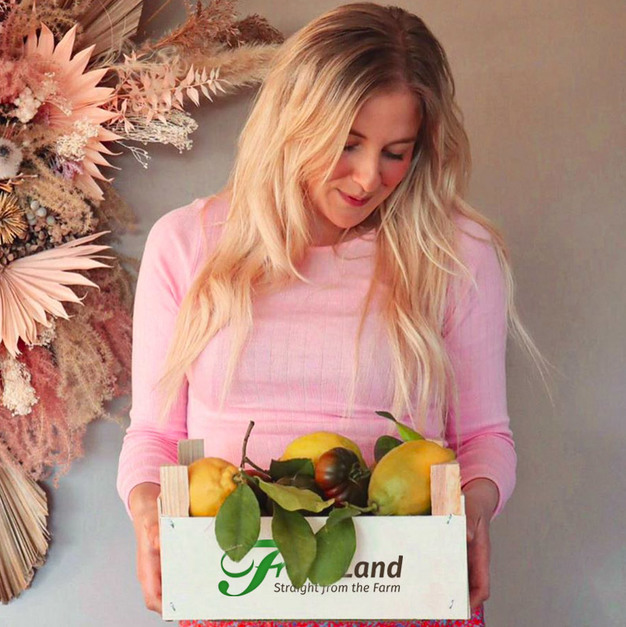
No competition for supermarkets
This is a purely European project. The company sources no products from Morocco or other Mediterranean third countries. "We guarantee that the growers are the ones who supply the fruits and vegetables. This concept is catching on, and you can see it in stores, where the ‘green assortment’ is becoming increasingly important and attracting shoppers. We're not an immediate threat to grocery stores, though. Our target groups differ slightly. Our customers find taste and sustainability important. In the retail model, there's inevitably plenty of waste, but I don't see supermarkets disappearing any time soon. People like to see what they're buying, and for last-minute purchases, a physical store is, of course, perfect," Mathilde admits.
She says several studies show that when home deliveries are done using optimal routes, their CO2 impact is often smaller than consumers visiting supermarkets. However, the biggest CO2 saving in Fresh.Land’s model, is the reduction of time in cold-chambers, which are known as big green house gas emitters.
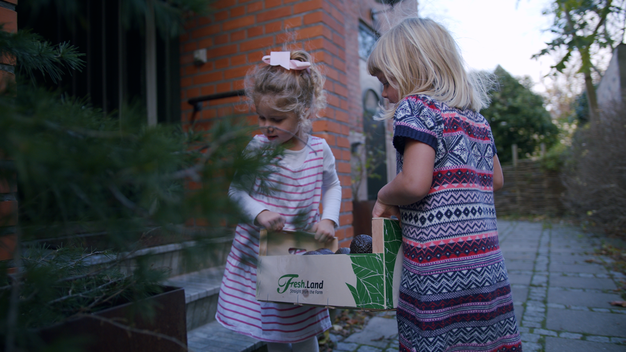
Marketing
The company's expansion does not rely solely on marketing but also mainly through their buyers' word-of-mouth advertising. "For example, a Danish customer posted on Facebook that he orders from Fresh.Land every two weeks, but since he had to order 10 crates in order to get delivery to his area, he invited others to join in, and each household could get smaller portions,” explains Jakobsen. “The special thing is that he became a kind of ‘hub’ where people from all over the island of Fyn would come in order to pick their boxes, which we delivered in his green house. The first week we sent ten crates, the second week 20, and now we send 200 crates to that customer every other week."
There is also still much interest from growers to work with Fresh.Land. "We always visit growers who want to partner with us. And we always send a sample to a laboratory to ensure the products are chemical-free.”
Mathilde dreams of revolutionizing the food market so consumers demand freshness because that equals quality and flavor. "And that means focusing on local seasonal vegetables rather than imported products from overseas with a year-round supply. We want to be active throughout Europe, both on the supply and demand side. Maybe we'll succeed by 2030," she concludes with a wink.
For more information:
Mathilde Jakobsen (CEO)
Fresh.Land
Indiakaj 20
2100 Kopenhagen (Denemarken)
Tel: +45 5089 0707
[email protected]
www.fresh.land
